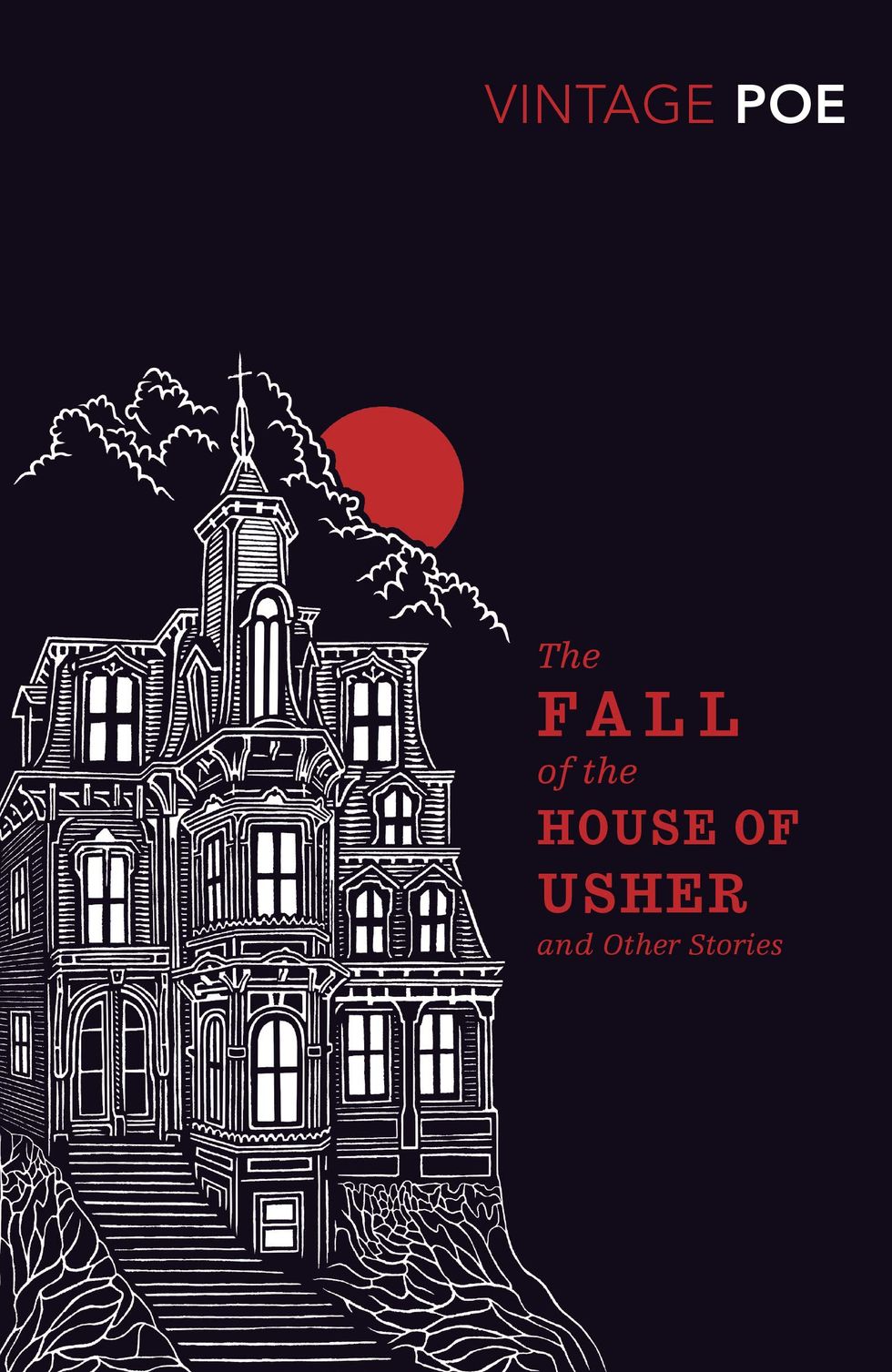How Netflix’s The Fall of the House of Usher Adapts Edgar Allan Poe’s Short Story
Spoilers below.
Mike Flanagan’s latest limited series, The Fall of the House of Usher, based on the short story of the same name by Edgar Allan Poe, is now on Netflix. The show stars many familiar faces from Flanagan’s other series, like The Haunting of Hill House and Midnight Mass (including Carla Gugino, Zach Gilford, and Rahul Kohli), and centers on the wealthy Usher family and its patriarch, pharmaceutical CEO Roderick Usher, as his entire bloodline begins mysteriously dying one by one.
The limited series has been described as a “loose adaptation” of the Poe story and the marketing materials allude to Poe’s other works (the key art features a raven mask and the subtitle “Nevermore,” both of which are direct references toThe Raven.) So how much of the show follows the titular short story? Here are the biggest differences in Flanagan’s adaptation, but be aware of spoilers ahead.
More From ELLE

Poe’s short story doesn’t detail the deaths of Roderick Usher’s children.
When the narrator arrives at the house of Usher in Poe’s story, Roderick and his sister Madeline are the only surviving members of the family, similar to how Flanagan sets up his adaptation. But Poe’s story doesn’t explicitly mention the other members of the Usher family, including children, or the manner in which the other members of the family perished—something that Flanagan’s series focuses its entire run explaining.
The addition of Roderick’s offspring and wife are a Flanagan creation that borrows heavily from other Poe stories as source material. Outside of Roderick and Madeline, each of the Ushers in the show are references to characters in the author’s many poems and short stories—Tamerlane, Annabel Lee, and Lenore are all from eponymous poems; Napoleon appears in The Spectacles and Prospero is a character in The Masque of the Red Death—creating a symbiotic relationship between his entire catalog.
The narrator in Poe’s short story is unnamed while Flanagan casts Auguste Dupin, a character from Poe’s detective fiction works.
In the original Poe story, an unnamed narrator arrives at the Usher home and the only detail we know about him is that he is Roderick’s “best and only friend” who has traveled across the country after receiving a letter complaining of an illness. The narrator observes Roderick’s peculiar behavior and even takes part in some of his harebrained ideas, including entombing his sister Madeline for two weeks before burying her.
Just like the other characters that make up the world of the Netflix series, Flanagan puts a Poe character from another story central to the show’s narration, though Roderick himself is the show’s true narrator. Auguste Dupin, a character from Poe’s detective fiction stories, has been circling Roderick for years related to the pharmaceutical company the Ushers run. Roderick beckons Dupin to the house for one last conversation where he recounts the deaths of each of his children before revealing the deal that he and Madeline made with The Raven in their youth.
Verna isn’t a character in Poe’s works, but her reveal as The Raven references Poe’s famous poem of the same name.
Verna is the only character in the series that isn’t pulled from another Poe story, though her alter ego as The Raven is undoubtedly a nod to his most famous creation (“Verna” is also an anagram for “Raven”). The poem The Raven deals with love and loss, and ravens are often seen as the harbingers of death, which is exactly how Verna is situated within the show. “You could say she’s the executor of fate or the executor of karma,” Carla Gugino, who plays the ominous character, told Netflix during production. “It’s batshit crazy in the best possible way.”
The Ushers in Poe’s story aren’t tied to the pharmaceutical industry.
Flanagan’s version of Roderick Usher is a power-hungry and money-hungry CEO of Fortunato Pharmaceuticals, a company that can be compared to Purdue Pharma in both its wealth and its development of destructive, addictive drugs. The Fall of the House of Usher occasionally feels like Dopesick when dealing with Roderick’s chosen profession, as it chronicles a crisis that feels similar to the contemporary opioid epidemic; when dealing with the entitled Usher clan, it can feel a bit like Succession.
Poe’s story doesn’t mention what the Ushers do for a living, though they do come from money that afforded them a family mansion. But Poe’s version of Roderick is that of a recluse instead of a powerful billionaire.
Both the story and its adaptation end with the Usher twins, Roderick and Madeline, at each other’s throats.
The twins that were thick as thieves end up being each other’s downfall in both versions of the story. Near the end of Poe’s House of Usher, Madeline is described as cataleptic and prone to trances and seizures. The narrator, who is the audience’s window into the unfolding drama, barely interacts with her and believes Roderick when he announces that Madeline has died, helping his friend entomb his sister despite noticing her rosy cheeks. It turns out Madeline is not dead and she takes revenge by attacking her brother, scaring him to death (literally) before dying herself.
Flanagan doesn’t take many liberties with the end of his version of the story: Roderick poisons Madeline and dismembers her eyes, and her zombie-like body breaks out of the basement and strangles Roderick before dying.
Just like Poe’s narrator, Detective Dupin manages to escape the house in the series and both characters watch as the House of Usher cracks and collapses to the ground, realizing that the Usher family was nevermore.
Radhika Menon is a freelance entertainment writer, with a focus on TV and film. Her writing can be found on Vulture, Teen Vogue, Bustle, and more.


